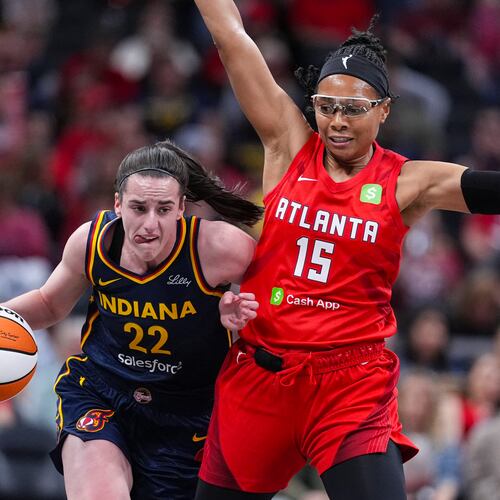I don’t know exactly what the Atlanta Braves offered Tim Hudson last fall. Let’s assume it wasn’t the $23 million over two seasons that the Giants gave him, or else he wouldn’t have seen the need to play elsewhere. He made $9 million in 2013, in which he posted a 3.97 ERA — his highest in any season since 2006, his second in Atlanta — before his ankle was broken in New York.
The Braves declined to make Hudson a qualifying offer, which would have been valued at $14.1 million — exactly what the Braves wound up paying Ervin Santana in March — and would have been way too high for a pitcher who'll turn 39 in July and who was coming off a so-so, albeit truncated, season. (My guess in November was that the Braves would offer Hudson $8 million for one more year's service.)
As noted, the Giants bought him for $11 million in 2014 with $12 million due next season. That was higher than the Braves could, or should, have paid. If Hudson can’t see that now, it’s because he’s looking back with his heart and not his head.
Bob Nightengale of USA Today quotes Hudson as saying: "It was made pretty clear to me that the Braves didn't want me back. After what I'd done for them, it was kind of a slap in the face."
Nightengale also reports that Hudson was so miffed by the Braves’ offer that “he didn’t bother to counter.”
Hudson had, let’s recall, accepted something of a hometown discount when he re-upped for the 2010 through 2013 seasons. But the Braves, as of November 2013, had to prioritize. They had Kris Medlen, Mike Minor, Julio Teheran and Brandon Beachy to comprise 80 percent of their rotation, with Alex Wood positioned to take a regular turn soon. They also had Jason Heyward and Freddie Freeman and Craig Kimbrel about to hit arbitration. (They also had — and have still — the regrettable contracts of B.J. Upton and Dan Uggla in place.)
As much as the Braves would have liked Hudson as rotational insurance, their considered decision was that he was less a priority than placating Heyward and locking up Freeman and Kimbrel (and Andrelton Simmons and Teheran, too). Their veteran insurance came in the form of Gavin Floyd, who signed for one season at $4 million.
At the time, the Braves had no way of knowing that Medlen and Beachy would be lost to bum elbows in the span of 24 spring-training hours. And there’s no denying that Hudson has been superb with the Giants: He’s 6-2 with an ERA of 1.75. But to suggest the Braves didn’t make a serious attempt to keep him depends, I guess, on your definition of “serious.”
David O'Brien reported in November that the Braves "made an initial one-year offer for significantly less than he made in 2013, then increased that to a two-year proposal in the past week. But the dollars weren't comparable to what San Francisco offered."
And here’s what Hudson, per DOB, said then: “The Braves made a really good push (with the increased offer). They did the best they could. Frank (Wren) was great.”
So how did the “really good push” become a slap in the face? Because Hudson is 6-2 and not 2-6?
We can fault the Braves and Wren for many things, contractually speaking, but I don’t think we can blame them because San Francisco paid $23 million for a pitcher who’ll be 40 when the contract lapses. (And who has had, we must note, a history of injury not including the ankle.) It’s unfortunate Hudson’s feelings got ruffled — he was a good Brave. But it’s odd that the sting of the alleged slap took so long to register.
About the Author
Keep Reading
The Latest
Featured


